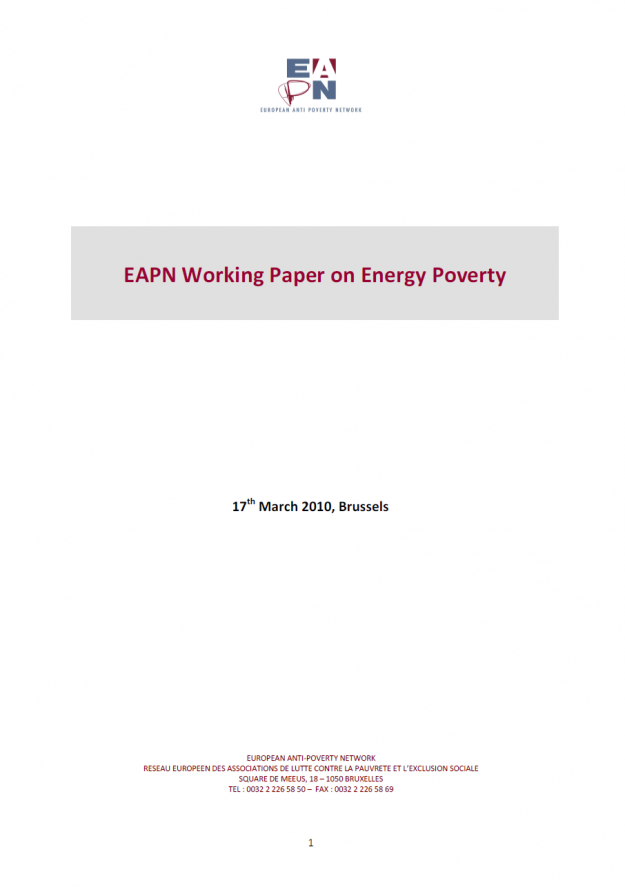EAPN and CECODHAS call on EU institutions to tackle energy poverty through a coordinated and integrated approach at national and EU level
{jathumbnail}


 {jathumbnail}
{jathumbnail}
On 24 March 2010, EAPN and CECODHAS-Housing Europe held a joint Conference on “Getting to grips with energy poverty From EU to Cities to Homes” in the framework of the EU sustainable energy week and the 2010 European Year for combating poverty and social exclusion.

